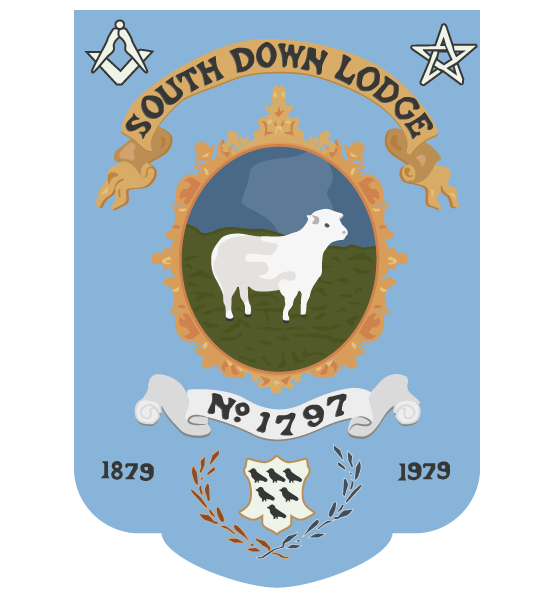With the outbreak of war in 1939 the summonses show gradual changes as Masonic life must have become more and more difficult. Regular L.O.I.s continued under what must have been very difficult circumstances although not mentioned on the summonses. The summons themselves, which up to the war had been relatively flamboyant akin to our present ones, gradually becoming more sparse from 1941 lacking the embellishments. They also show that, from early 1940, the dress code, out of necessity, included service dress. The minutes also record that during these early war years Lodge attendance was surprisingly good with plenty of ceremony work. However finances were obviously tight with proposed reduction in subscriptions more than once.
It is not until the installation meeting in April 1942 that the summons show the first signs of difficulty in the catering for ‘supper’ after the meeting. The caterers had to restrict the numbers to only 70, which meant just one guest per member, even so this meeting was very well attended. At the resumption after the summer break, conditions had become worse and members were informed that ‘no supper’ would be available after the Lodge meeting which incidentally were scheduled later at 6.00pm. Occasionally, at the last minute, a ‘light refreshment’ could be made available, presumably depending on the state of the rationing at that time. It is interesting in reading the minutes that one has to ‘read between the lines’ for whilst normal conditions must have been very difficult, rarely there was any comment other than Masonic.
All through those difficult war years there seemed to be no shortage of Masonic work. On one occasion no less than five candidates were balloted for and quite a number of times emergency meetings were called so that the brethren could advance through their degrees without conflicting with their war time duties. At much the same time the then master W. Bro. H. Wren requested that he should forgo his Past Master Jewel and collar so that the sum of 10 guineas could go towards the 1943 festival fund. This example was followed by other brethren throughout these hard times. The war also allowed for the relaxation in the rules when arranging emergency meetings without seeking dispensation from the P.G.M. This was necessary to harmonize with candidate’s war duties.
The late W.Bro. Harold Strong, who was in the chair just as the war was finishing. Paradoxically it was at this time that the dining arrangements were at their most precarious. At his installation, only 65 were permitted to dine even though there were far more in the Temple. On one occasion in March 1944 the only refreshment available was a cup of tea! Shortly after this, the war ended and matters gradually returned to normal. The special liberal powers given to masters during the emergencies were rescinded. Sussex Province requested an audit from all Sussex Lodges as to their members war records, moralities, meeting disruption and material losses. Our own audit shows many of our brethren performing their war time duties either in the forces or in a civilian war time capacity. Happily, all but one returned from the war and of the rest, there were no permanent injuries. Furthermore, no lodge meetings were cancelled…. to the contrary the attendances in these extraordinary and difficult times were exceedingly good.
